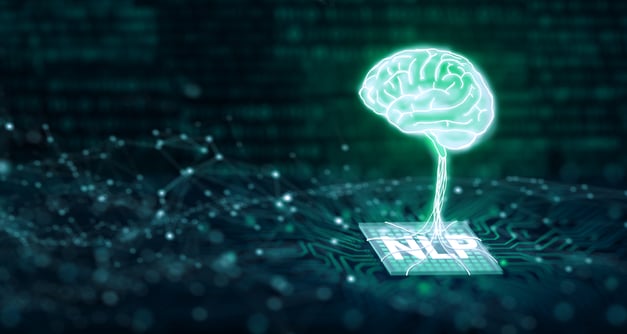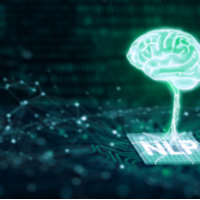Natural language processing (NLP) is a rapidly growing interest area of artificial intelligence (AI). By 2025, the NLP market is projected to reach more than $43 billion in value—and for a good reason. As computers become more intelligent, they are able to take over tasks previously only completed by humans. The application of NLP in contract analysis goes beyond simply finding errors. It has the potential to change the negotiation process altogether.

NLP leverages data to help computers understand how humans use language. With this understanding, NLP software can make inferences about language and predict likely outcomes—a far-reaching innovation for contract analysis. It allows organizations to essentially predict a contract’s potential performance while offering enhancements and revisions to optimize business outcomes.
NLP for Contract Analysis
A comprehensive list of the mistakes enterprises make on contracts could span thousands of pages. Generally, though, they can be grouped according to three basic types: unilateral, mutual, and common.
Unilateral
|
Mutual
|
Common
|
|
A unilateral mistake happens when only one party misinterprets the terms of a given contract. This common type of error arises due to ambiguity. It is easy to overlook specificity when dealing with massive contracts and thousands of words. Even several reviews may not catch all the ambiguous clauses that someone could misinterpret.
|
Mutual mistakes are less common as they happen when both parties to the contract misinterpret a key term. Mutual mistakes may void an agreement, but only if the error was significant enough to change the intent. These mistakes may occur more frequently in template-based contracts.
|
Common and mutual errors are similar, as they involve both parties. However, in this instance, both sides are wrong on a fact that is material to the agreement. It is not their interpretation of the contract that is incorrect, but the contract itself. A common mistake requires good faith—meaning that the company did not intentionally act on wrong information. This is another situation rife with template-based errors.
|
Ambiguity and contract template mistakes are frequently caused by one of the above contractual issues. These problems can be easily overlooked in agreements, even when the reader is fully aware of the risk. NLP in contract analysis can help to overcome these many challenges.
For example, an NLP solution could review a Non-Disclosure Agreement between an employee and employer. It may analyze a description regarding the protection of confidential information and realize that the terms are vague. They would be likely to mislead a layperson and could potentially lead to issues later. The software would then recommend the writer update the section and include more specific language to avoid a unilateral contract mistake. This application of NLP is particularly beneficial; however, it covers only a small part of NLP’s potential in contract analysis. NLP also has the potential to change contract negotiations and help enterprises consistently negotiate win-win agreements.
NLP for Contract Negotiation
Some experts believe we are reaching the end of contract negotiations as we know it. No longer will legal teams spend hours on the phone or in boardrooms hammering out agreements. Instead, smart technology will communicate and use data, machine learning, and NLP to close equitable deals for all parties.
While we're not completely there yet, significant NLP applications are already reshaping contract analysis and negotiation. One of the most dynamic of these applications can be found in an organization’s digital negotiation playbook. This document acts as a source of data for NLP-driven solutions that review proposed contracts and parse the various sections, comparing them to the playbook and flagging areas of concern. The most robust of these applications can offer alternative language that would strengthen the agreement.
This process eliminates two critical issues in contract negotiations: playbook divergence and improper focus areas. Attorneys are only human, so it is unlikely they have the entire playbook committed to memory. In hopes of completing a deal, it is easy to accidentally go outside of company protocols. Additionally, legal staff may focus too heavily on non-essential terms and overlook areas where negotiations would genuinely benefit the company. NLP helps negotiators adhere to the playbook and focus on the most critical areas.
The applications of NLP for contract analysis go far beyond simply ensuring an accurate agreement. A contract negotiation platform that leverages NLP can cut negotiation time significantly while creating better deals for the company. As these solutions become even more sophisticated, they are positioned to change the entire legal industry for the better.
At LexCheck, NLP is an essential component of a contract analysis and negotiation platform that helps you close deals faster and reach more equitable agreements. Request a demo to see how our technology can help optimize your legal department, or contact us at sales@lexcheck.com to learn more.

